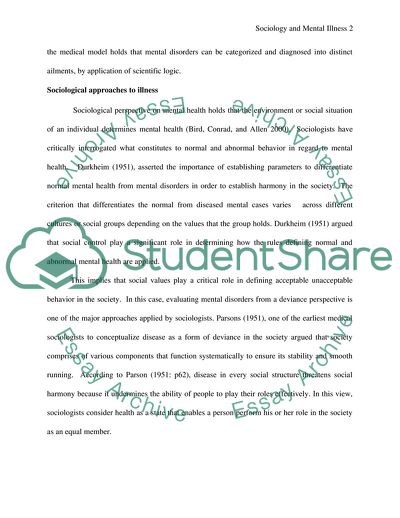Cite this document
(Sociology and Mental Illnesses Essay Example | Topics and Well Written Essays - 1500 words, n.d.)
Sociology and Mental Illnesses Essay Example | Topics and Well Written Essays - 1500 words. https://studentshare.org/sociology/1756753-why-might-sociologists-be-interested-in-how-people-experience-mental-illness
Sociology and Mental Illnesses Essay Example | Topics and Well Written Essays - 1500 words. https://studentshare.org/sociology/1756753-why-might-sociologists-be-interested-in-how-people-experience-mental-illness
(Sociology and Mental Illnesses Essay Example | Topics and Well Written Essays - 1500 Words)
Sociology and Mental Illnesses Essay Example | Topics and Well Written Essays - 1500 Words. https://studentshare.org/sociology/1756753-why-might-sociologists-be-interested-in-how-people-experience-mental-illness.
Sociology and Mental Illnesses Essay Example | Topics and Well Written Essays - 1500 Words. https://studentshare.org/sociology/1756753-why-might-sociologists-be-interested-in-how-people-experience-mental-illness.
“Sociology and Mental Illnesses Essay Example | Topics and Well Written Essays - 1500 Words”. https://studentshare.org/sociology/1756753-why-might-sociologists-be-interested-in-how-people-experience-mental-illness.


